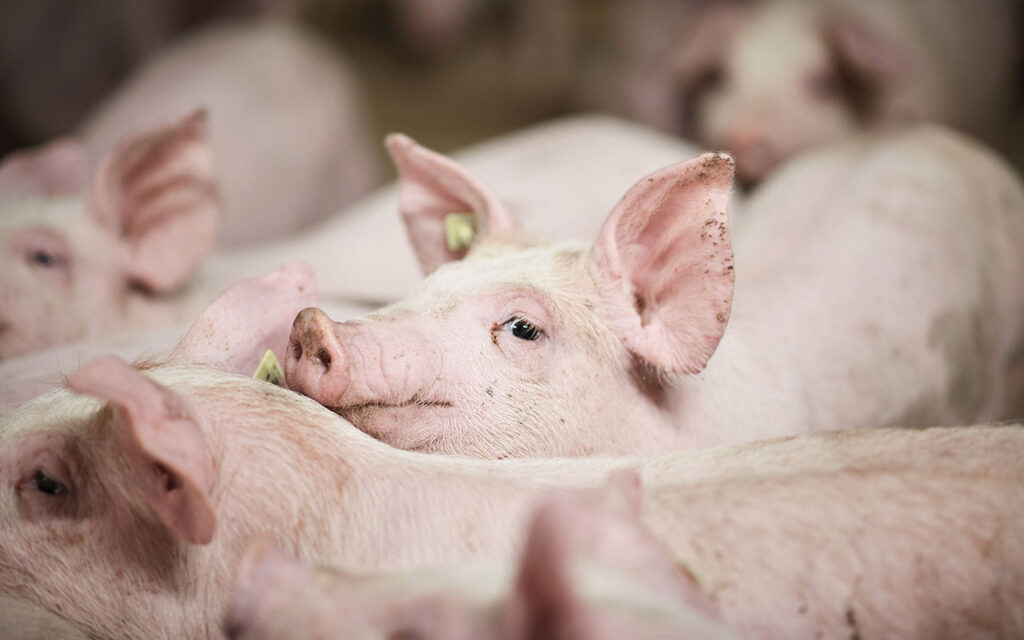From today, all new pig supply contracts will need to be in writing, under regulations intended to bring about a fairer pig supply chain and give producers more long-term stability.
The Fair Dealing Obligations (Pigs) regulations 2025, which come into force today, have been welcomed by the NPA, which played a big part in developing them.
The regulations are the direct result of the pig crisis of 2021 and 2022 that exposed serious imbalances of power in the supply chain and the lack of credible contractual relations in place between pig sellers and buyers.
The regulations are being phased in over 12 months. From today, August 13, all new pig supply contracts will need to be in writing by default. This will also be extended to existing agreements from August 13, 2026.
The contracts will need to include, among other things, clear terms on:
- The duration of the agreement.
- The pricing mechanism used.
- The supply of contracted pig numbers for both buyers and sellers.
- Force majeure clauses in relation to the collection or delivery of pigs for producers and processors.
- A dispute resolution procedure.
The new pig sector regulations, developed in consultation with industry over the last three years, follow similar legislation already in place in the dairy industry, with the process also ongoing for the fresh produce and egg sectors.
Protection and clarity
The NPA played a big part in drafting the pig regulations over the past three years, working closely with the previous and current governments.
NPA chief executive Lizzie Wilson said: “We have worked hard to ensure these regulations provide the protection and clarity pig producers need in their contractual relations with buyers.
“At the same time, we have made sure they retain the necessary flexibility for both sides to that no-one is penalised for circumstances out of their control and the market can continue to function normally. We believe the regulations have achieved that balance.”
The NPA was also adamant that the ability to review and alter the regulations should be included within the regulation.
“We were pleased that Defra has listened to us on this,” Mrs Wilson said. “There is a requirement for the Secretary of State to review these regulations and publish a report at least every five years, including an assessment of whether the provisions need to be changed.
“That is really important, as, while we are happy that, as drafted, the regulations will achieve their purpose, nothing is perfect and circumstances change. We will be keeping a close eye on how the new rules play out in practice – and will make representations, if needed.
“Furthermore, the new Agricultural Supply Chain Adjudicator is keen to hear of instances where the regulations might not be delivering as, if a common theme is emerging, it is his duty to raise the issue and find a resolution.”
Detailed guidance
The NPA has developed detailed guidance for members. NPA public affairs manager Tom Haynes said: “The regulations should be relatively easy for all parties to comply with, but it is essential that everyone knows exactly what is required of them.
“That is why we have published this guidance in the Members’ Area of the website, setting out all the necessary details and background. We urge our members to take advantage of it.”
Fair and built on trust
Food security minister Daniel Zeichner said: “These reforms will make sure farmers work in a supply chain that’s fair, clear, and built on trust. They’ll be able to plan for the future with confidence, knowing they’re protected from sudden contract changes and have clear ways to sort out any disputes.”
“This is a practical, proportionate step forward, backed by industry and part of our Plan for Change to support food security and rural growth.”
Richard Thompson, who was appointed last June as the Agricultural Supply Chain Adjudicator (ASCA) to enforce the Fair Dealings Powers across various sectors, said FDOP2025 will give pig farmers and producers greater certainty over the terms of their contracts.
“We’ve published full guidance on the regulations, my enforcement role, and how to make a complaint and we would recommend that alongside this guidance, businesses should always seek their own independent legal advice concerning compliance with FDOP2025 and possible contractual disputes,” he said.
- You can more about the new regulations HERE




